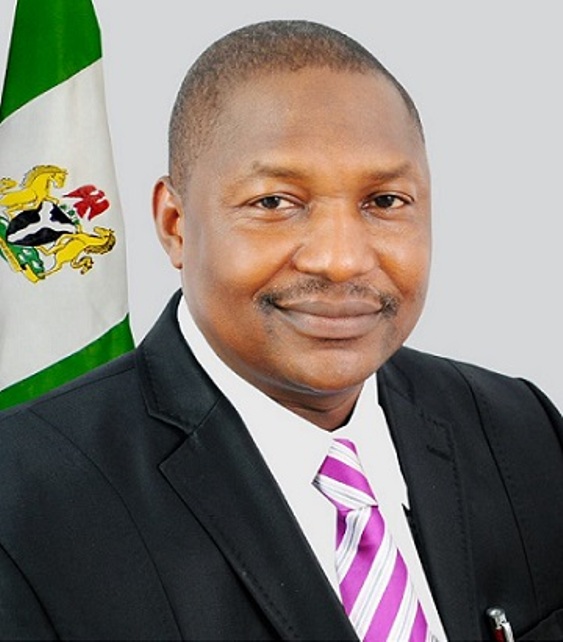The federal government has denied reports it engaged a third party in the repatriation of about $300 million public funds looted by the late dictator, Sani Abacha.
The minister of justice and attorney-general of the federation, Abubakar Malami, explained that the government did not enter into any agreement to pay any amount from the money to any individual.
Malami’s spokesman, Umar Gwandu, quoted him as saying in an interview with Voice of Nigeria and Deutsche Welle, on Wednesday that the $300 million is not connected with assets exempted by former President Obasanjo.
According to the statement: “Pursuant to August 18, 2003 agreement by which President Obasanjo “resolved and released all claims and liabilities of any kind which exist or might exist against Atiku Bagudu in favor of or at the suit of any organ of government of the Federal Republic of Nigeria”.”
He said the government is “exclusively bound” by the tripartite agreement entered into between Nigeria, the US and Island of Jersey for the repatriation of the $300 million.
He said no individual was named to be a beneficiary of any amount in the agreement.
“Malami said the international community has developed confidence in the present administration in view of the fact that looted funds recovered by the President Muhammadu Buhari’s led administration, before now, were judiciously utilized for high-impact public-oriented projects,” the statement added.
“He said in the document of the agreement, it was clearly spelt out that the monies will be utilized in the Abuja-Kano and Lagos – Ibadan Expressways, as well as the 2nd Niger Bridge only and the insinuation of third-party beneficiary outside the scope of the agreement, is, therefore, baseless and unfounded.
“The Minister said Nigeria has no reputational issue over enforcement of agreements and treaties and it is, therefore, an impossibility and unimaginable for Nigeria to hand over some amount of money to a third party not expressly mentioned in the agreement after the three countries concerned signed an agreement on what to do with the repatriated funds.”




